On the occasion of the 80th anniversary of National Day, Professor Nguyen Duc Khuong shared with Dan Tri his perspectives on the country's development journey, the role of Vietnamese intellectuals and sent a message to the younger generation to continue writing the glorious history of the nation.
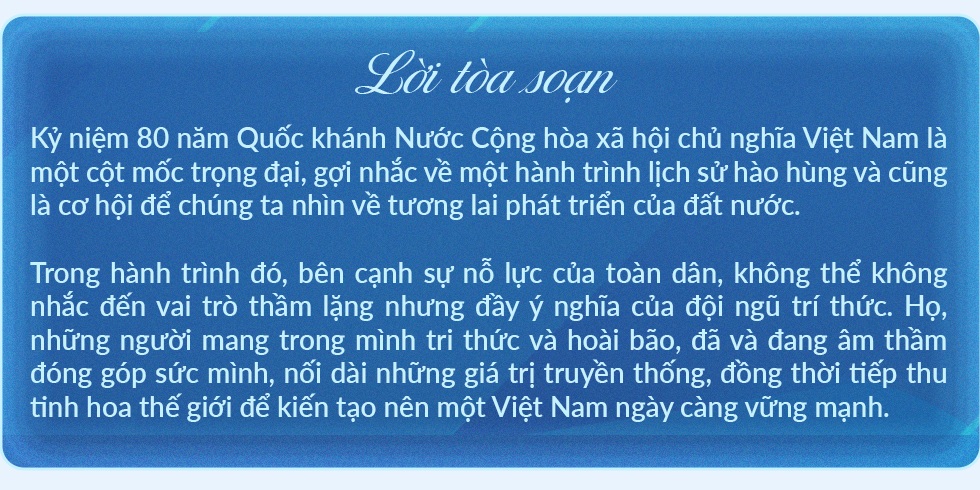
Dan Tri reporter had a conversation with Professor Nguyen Duc Khuong, listening to his profound views on the country's development path. He emphasized that patriotism is not something far away, but is demonstrated through specific actions, from doing the smallest things well to contributing to the common development.
His stories not only inspire but also send meaningful messages to the young generation, who will continue to write glorious pages of history for the nation.

Professor Nguyen Duc Khuong, on the occasion of the 80th anniversary of National Day, a very important historical milestone of the nation, could you share your greatest emotions when looking back on the long journey of the country? What image first comes to your mind at this moment?
- This is a very meaningful question and evokes a lot of emotions in me. When I think about the 80 years of the country, my greatest emotion is pride. It is pride because Vietnam has overcome many challenges and difficulties since the early days of independence to become a modern, friendly, peace- loving country.
Today, Vietnam is highly appreciated by the world in its partnerships in all fields, from politics , economics, society, security and defense.
I think this is a point that needs to be emphasized. The respect we have today is not an accident. It is the result of a long and arduous journey.
Imagine that, from the first days of independence until now, we have had to face many difficulties, many barriers, many barriers in diplomacy , politics, and economics. During those moments, many countries still did not clearly understand the vision, actions, and aspirations of Vietnam as well as of the Vietnamese people.
But throughout that journey, we always have a strong desire. The desire to rise up, the desire to have independence, freedom and a path of development to build a civilized, stable and prosperous society for everyone. That is the ideal of the nation.
All we want is to have a stable peace to develop and build prosperity. Every citizen can participate and contribute to that prosperity and make our country Vietnam gain the respect it has today from international partners.
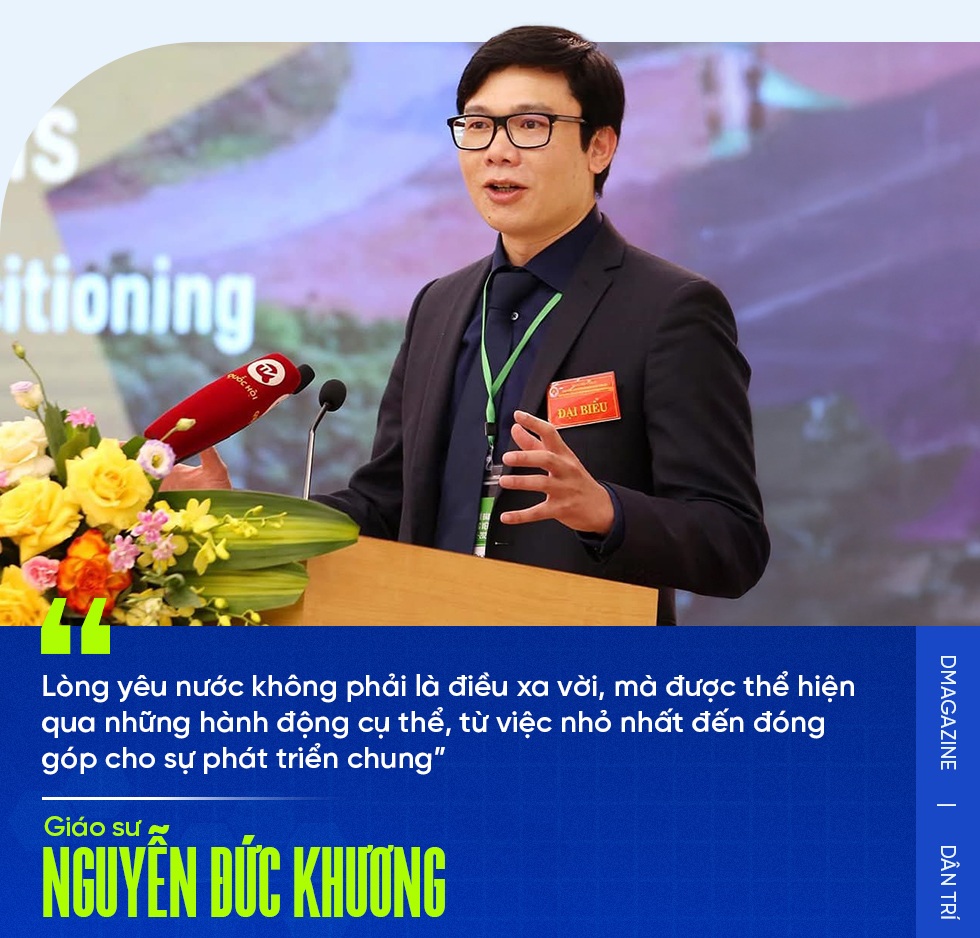
How did your childhood memories in Vietnam shape your personality and your desire to research and contribute later on?
- It can be said that I was born at a time when the country had achieved peace, after going through decades of resistance against the French and the Americans. Although we also went through a border war afterwards, my first memories of the war only came from my father's stories.
My father was a soldier at that time, directly participating in the border war in 1979 to protect the borders of the Fatherland. Those stories are truly sacred and those are the first memories of patriotism.
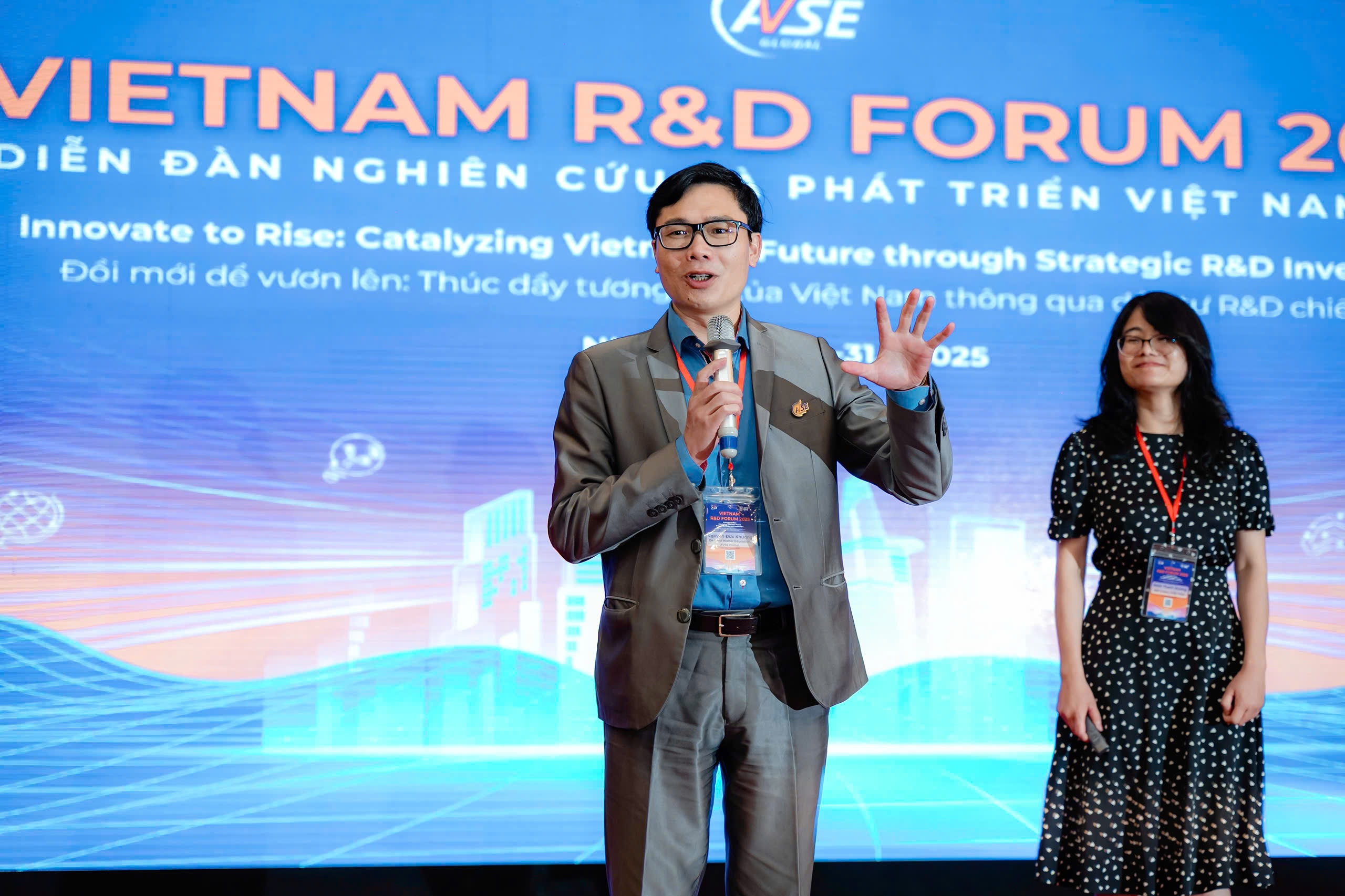
Growing up, my childhood was lived in a space where, although the country was still in difficulty, there was peace. The border war lasted until the early 90s and I did not have to live in a fierce war period, without bombs and bullets, and without having to evacuate.
Looking back now, I see that it was a very special childhood. My childhood was filled with the laughter of children in the fields, with my friends building schools, and cleaning up the neighborhood. It was very lovely, very gentle and interesting, because I didn’t have to worry much when the country was at peace.
Later, when I learned the lessons of history, I gradually realized that to have this peace, the nation had to go through an extremely difficult period. Along with the activities of the youth union, I felt the determination of the previous generations. They did everything they could to give the younger generation that independence and peace.
I told myself that there will come a time when I have to participate in work to serve the development of the country, contribute to the development of the village, of the organization.
At that time, I didn't have many specific ideas about what I would do in the future, but my biggest wish was to go to university, explore the outside world, and find ways to contribute more to my country.
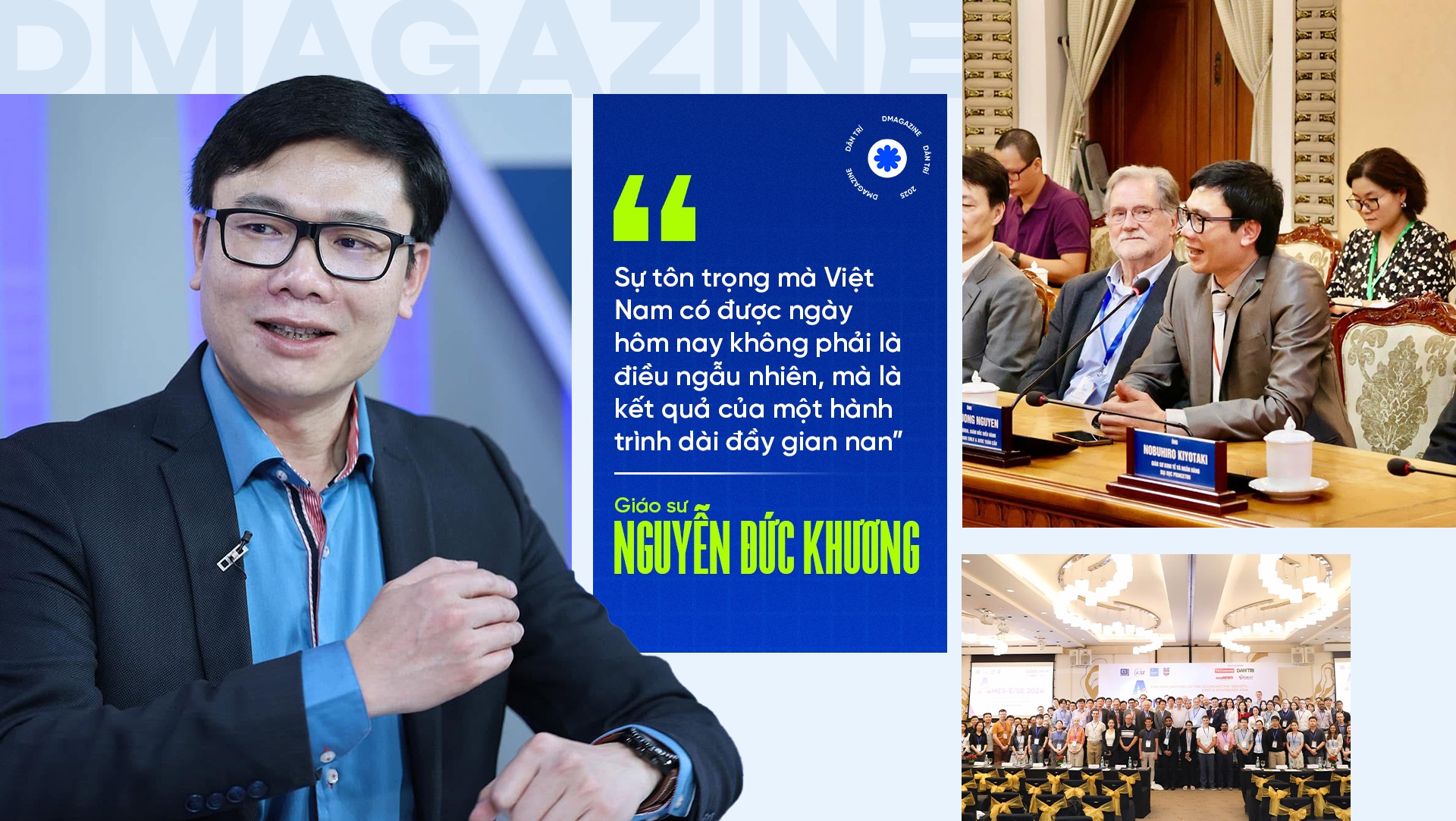
What chance brought you to France and you chose to pursue finance, a field that has a vital impact on the prosperity of a country?
- It was really a coincidence. It can be said that at that time, very few young people knew clearly what they wanted and what they would do. Partly because of the lack of information, partly because the connection and sharing between regions and with the world were still limited.
Initially, when I took the university entrance exam, I decided to become a petroleum engineer and was able to study at the University of Mining and Geology. But then, I had a thought that could be said to be quite "naive" at the age of 17-18.
I thought that if I did well in the petroleum school, I would have two options: One was to work at the leading research institutes in Vietnam, the other was to go to Vung Tau to exploit oil. Both of these options seemed a bit limited in terms of mobility and access to the world.
At the same time, I also intended to take the entrance exam to the University of Commerce to learn about the economy and how businesses operate. I took the exam and was among the top students with the highest scores. The school offered me a scholarship from the French-speaking community, giving me the opportunity to study in France.
The change happened in just two days. On the first day, I took my suitcase to the bus stop to enroll in the University of Mining and Geology. But when the bus was about to arrive, I reconsidered and decided to turn back. The next day, I enrolled in the University of Commerce. That decision led me to France and to this country for 25 years since graduating from university in Vietnam.

When coming to France, did the Professor have any so-called "enlightenment" moments to realize that his mission was not only personal development but also had to be linked to contributing to the development of Vietnam?
- When I came to France, I was really confused. I think the biggest shock was not cultural, because France and Vietnam have quite similar cultural corridors. The biggest shock was the difference in knowledge level, life experience and understanding of the world between Vietnamese students and international students.
I remember, after the first day of my first class, the teacher said that she would send the homework via email. At that time, in Vietnam, I had only just started using computers to learn programming and had very little practice time. I had to ask a Tunisian friend what email was and how to use it.
After 15 minutes, he had set me up with an email address, which showed how far behind I was technologically in the developed world in 2000.
This gap has motivated me to study non-stop. I realized that I have to make a great effort to narrow the gap in professional level and then have to surpass them to be able to continue studying at a higher level. I think that making an effort to reduce that gap is extremely important for us to be able to rise up.
The second thing is that I see that the Vietnamese student and intellectual community in France is growing. It is a huge resource. I think that this force is fully capable of continuing the legacy of the great predecessors, the generations that have been very successful like Mr. Tran Dai Nghia.
That motivated me to join and build the Vietnamese Student Association in Paris, then the Vietnamese Student Association in France. We built a network with more than 20 branches in all provinces of France in 2008.
The most important thing is that you have a close connection with the Vietnam Student Association in the country and the Central Youth Union. It can be considered an inseparable part of the Vietnam Student Association in the country.
As the members of the association grew up and became experts and intellectuals, I asked myself the question of how to connect, help each other and contribute to Vietnam. This led to the establishment of the Association of Vietnamese Scientists and Experts Global (AVSE Global) in 2011.
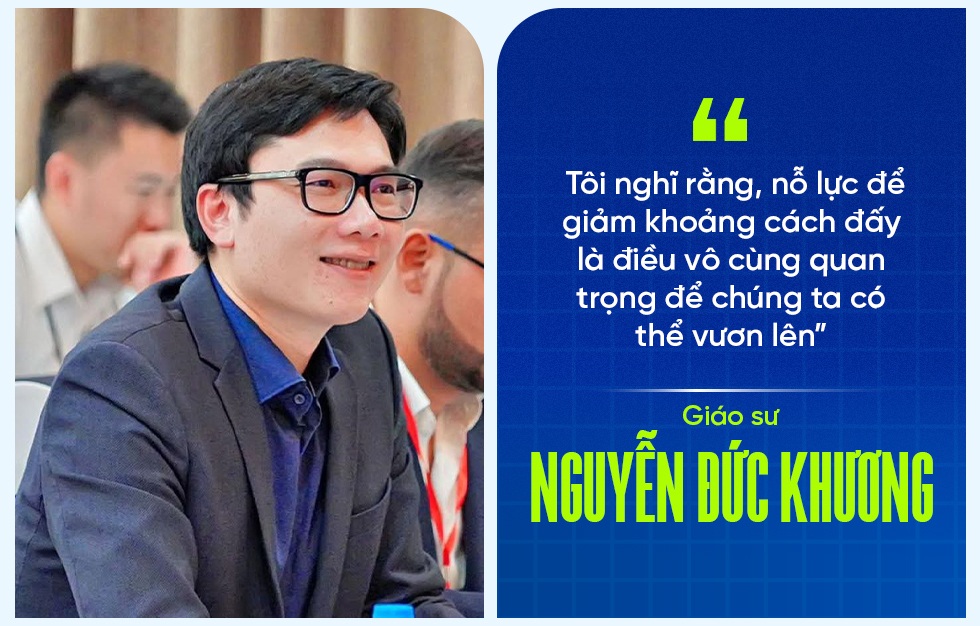
The Professor once said that for Vietnam to become strong, it must start by doing small things well. What experiences in your career has drawn this philosophy from?
- This philosophy is my life philosophy. I realize that, when faced with a problem, if we do not take the first steps, we will never leave the starting line. Once we take the first steps, we will gradually reach the destination. On that journey, there will be big things and small things. Usually, the experiences gained from small things will help us shape how to do big things.
A big job cannot be completed overnight. We have to divide and phase that big job into small tasks. That is also the way for us to achieve success. If we look back at the entire history of Vietnam, this story has almost seeped into the blood of the Vietnamese people. It is a natural thing.
I also think that the goal is never the limit. Every time we reach a goal, it becomes the starting point for a new goal. And each time, we have small things to do. Today's small things will be much bigger than the small things of the past.
As an intellectual living and working abroad, how does the Professor express the concept of patriotism through specific actions?
- When I stepped on the plane and left Vietnam, I had a different feeling about patriotism. When we are in the country, we naturally assume that patriotism is already in us. But when we go abroad, I realize that each of us is almost an “ambassador”.
When people look at Vietnamese people abroad, they look at the face of Vietnam. We need to show the image of a peaceful Vietnam, rising strongly, dynamic, and ready for international cooperation.
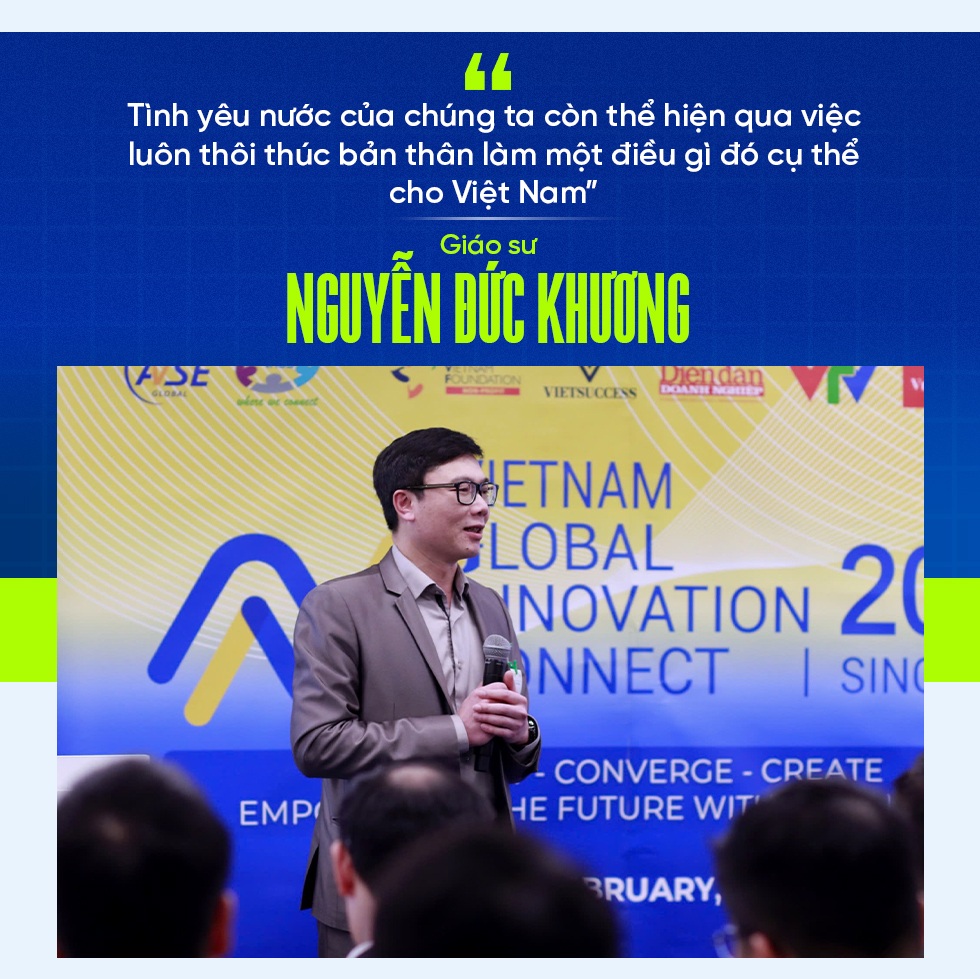
Our patriotism is also expressed through the constant urge to do something specific for Vietnam. For scientists, it could be working as a guest lecturer at Vietnamese universities, collaborating with businesses and research institutes to develop projects. For me, it is participating in contributing ideas and building policies to make Vietnam more prosperous.
I was involved in consulting for the former Yen Bai province. Together with local leaders, we researched and built a unique development model that combines growth and happiness. Instead of focusing only on economic figures, this model also measures people's satisfaction in many aspects such as public services, health care, education, and the environment.
We spent weeks in Yen Bai, including in the most difficult areas like Mu Cang Chai, to think with the people about the future development model. This project made me feel that what I do is really useful and beneficial for the development of the country.
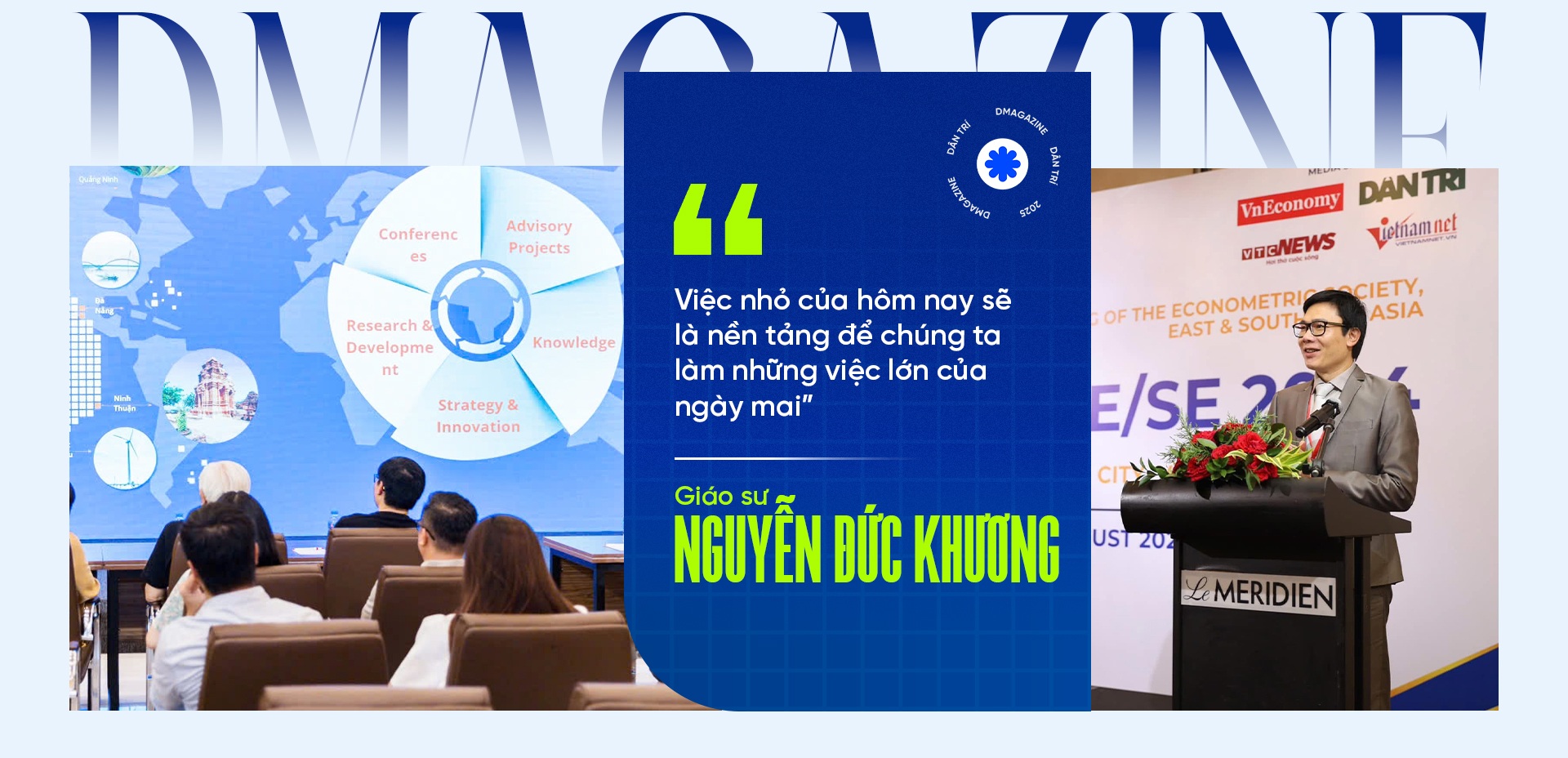

In the context of today's volatile world, geopolitical competition, climate change and the explosive development of AI, what, according to the Professor, is the driving force for the imagination and creativity of Vietnamese people to continue to develop?
- In the past, people often said that Vietnamese intelligence and creativity would come when we were put in a passive position, that is, "waiting until the water reaches our feet before we jump". But now, with the world context always changing very quickly and unpredictably, we cannot wait until the water reaches our feet before jumping anymore. We need to build a roadmap, a longer vision.
The precious thing is that the entire Vietnamese people have a common vision, which is the vision for 2045, when the country will celebrate 100 years of independence and become a developed nation. This is not only the aspiration of the leaders but also the aspiration of every citizen. That long-term vision is the motivation for us to be ready to respond to all challenges.
To do that, we need to build a strong enough internal strength, combined with international integration to attract resources. The internal strength of a country, the self-reliance of its people, the ability to manage risks... all of these will create a combined strength. I believe that, to stand on the shoulders of giants, we must first be self-reliant. Only then can we take advantage of the best that they have to offer.
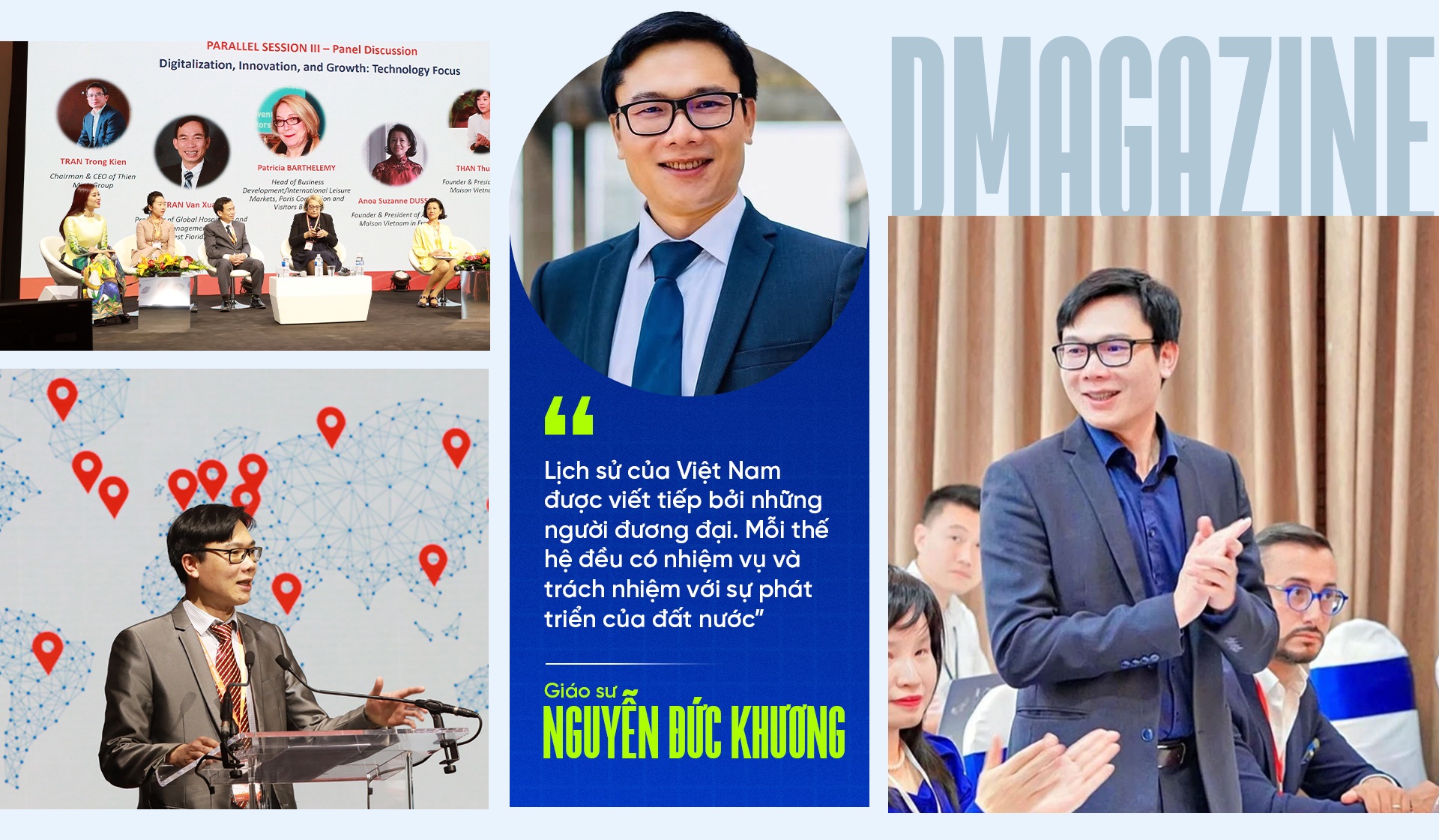
Can the professor send a message to the younger generation, who will continue to write the story of national strength?
- My message is probably very brief and focused on one idea: The history of Vietnam is continued by contemporary people. Each time, each generation has its own tasks and responsibilities for the development of the country.
I think the younger generation just needs to be aware of that. We need to combine our internal strength, traditional strength with a strong enough international resource. Then, everyone will work towards common goals, so that Vietnam becomes a destination for intelligence, a destination for science and technology, for innovation and creativity, and a destination for all programs that can help the world become more peaceful and stable. This is the brand of Vietnam in the next stage of development.
We should put Vietnam's development into the common prosperity of the world. Then, we will have the support of the whole world, like all the universes converging for Vietnam to develop. I believe that the young generation with its strengths will promote that unique feature of Vietnam.
Thank you Professor for taking the time to chat!

Source: https://dantri.com.vn/cong-nghe/gs-nguyen-duc-khuong-lich-su-viet-nam-duoc-viet-tiep-boi-the-he-duong-dai-20250817100502925.htm




![[Photo] President Luong Cuong attends special political-artistic television show "Golden Opportunity"](https://vstatic.vietnam.vn/vietnam/resource/IMAGE/2025/8/22/44ca13c28fa7476796f9aa3618ff74c4)

![[Photo] President Luong Cuong receives delegation of the Youth Committee of the Liberal Democratic Party of Japan](https://vstatic.vietnam.vn/vietnam/resource/IMAGE/2025/8/22/2632d7f5cf4f4a8e90ce5f5e1989194a)
![[Photo] Prime Minister Pham Minh Chinh chairs the conference to review the 2024-2025 school year and deploy tasks for the 2025-2026 school year.](https://vstatic.vietnam.vn/vietnam/resource/IMAGE/2025/8/22/2ca5ed79ce6a46a1ac7706a42cefafae)



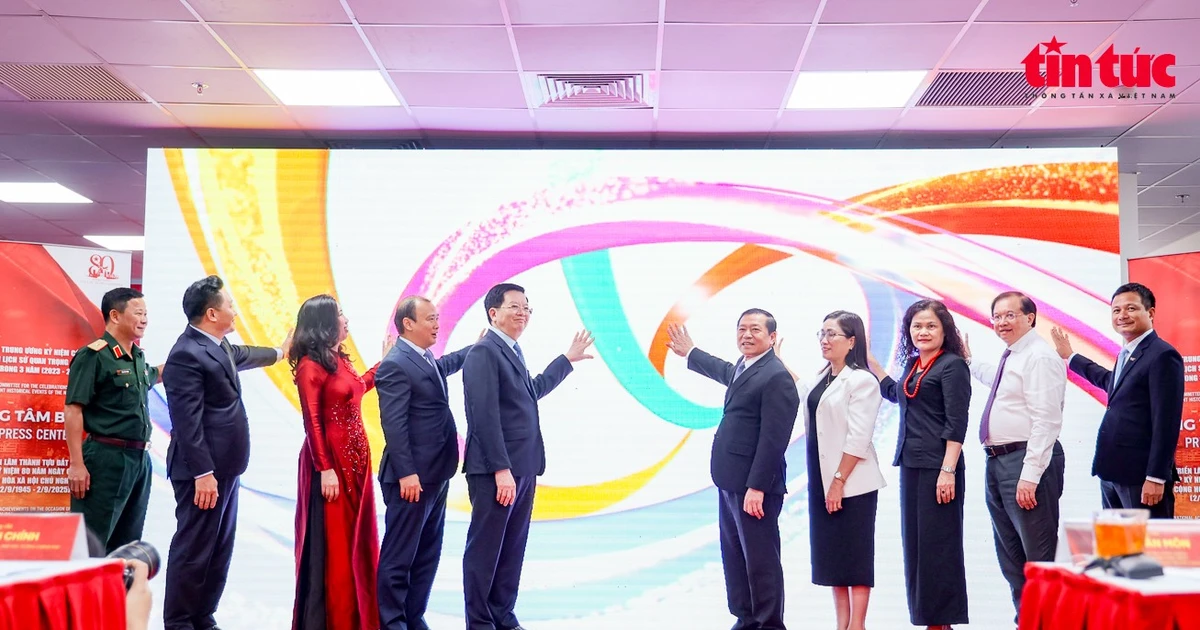

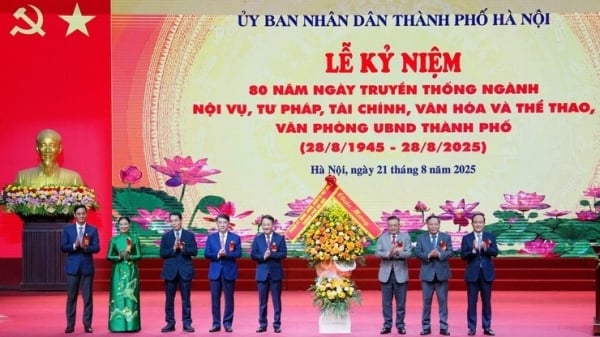

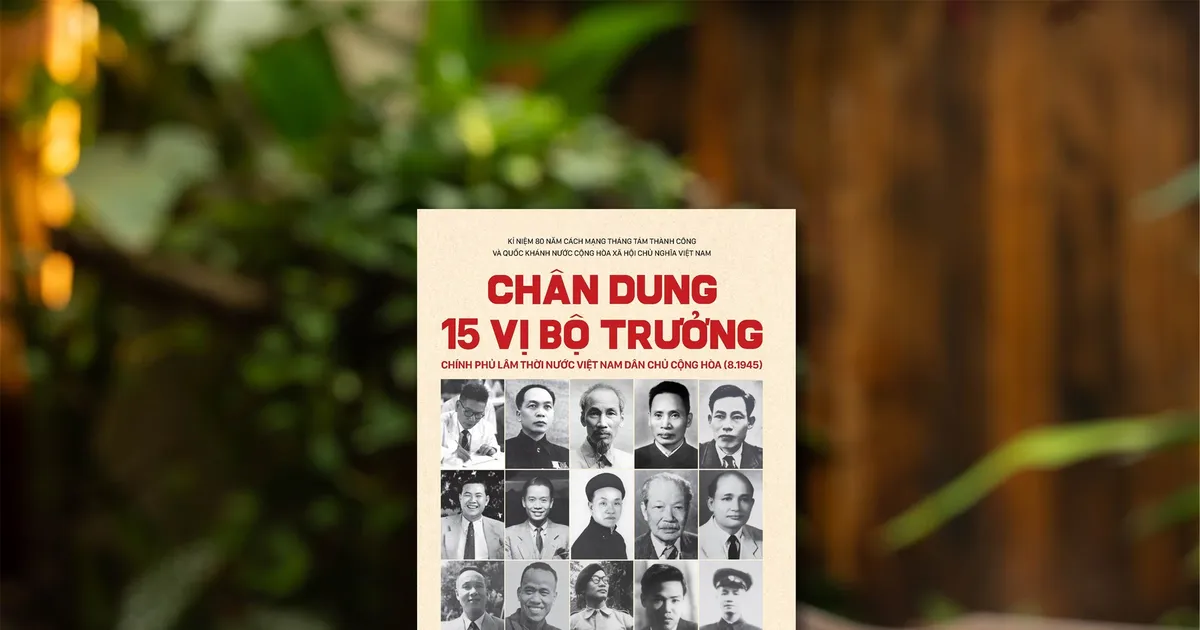
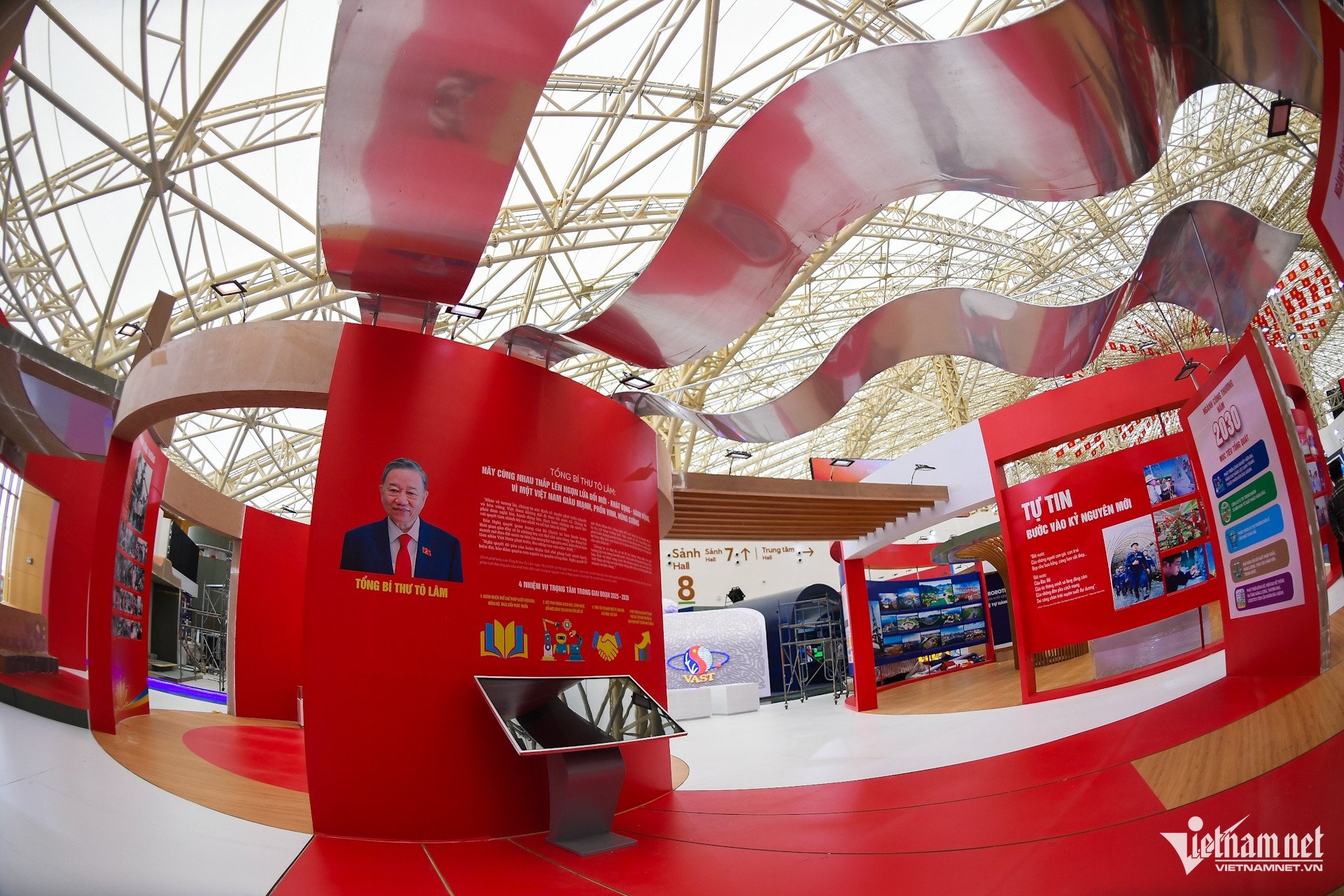

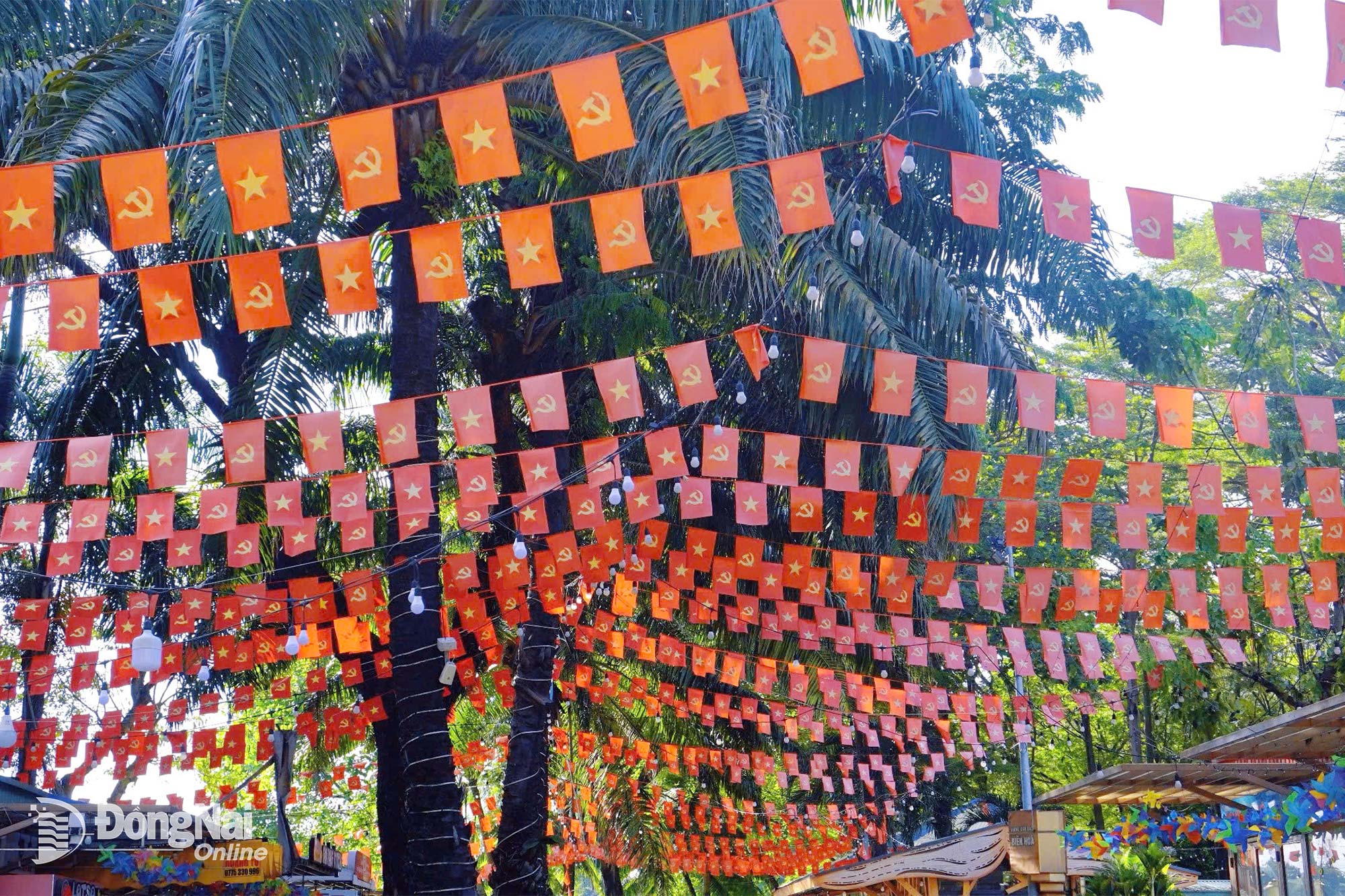



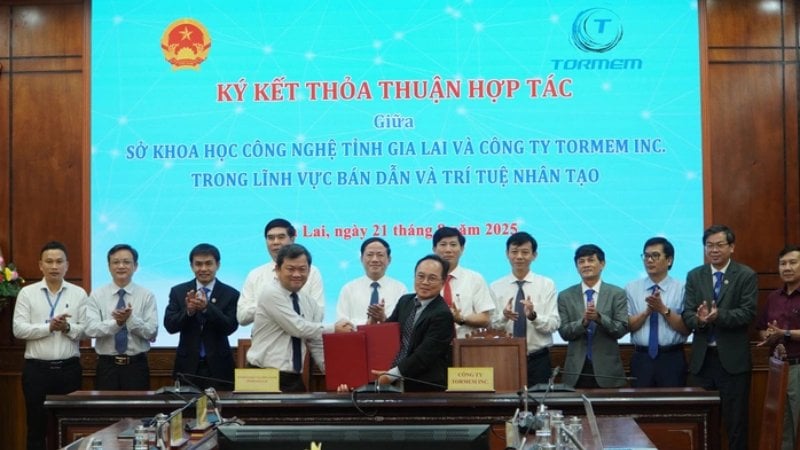
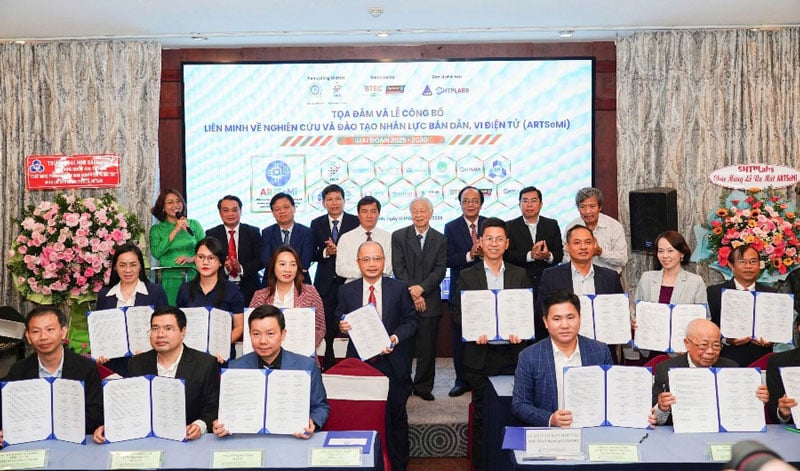
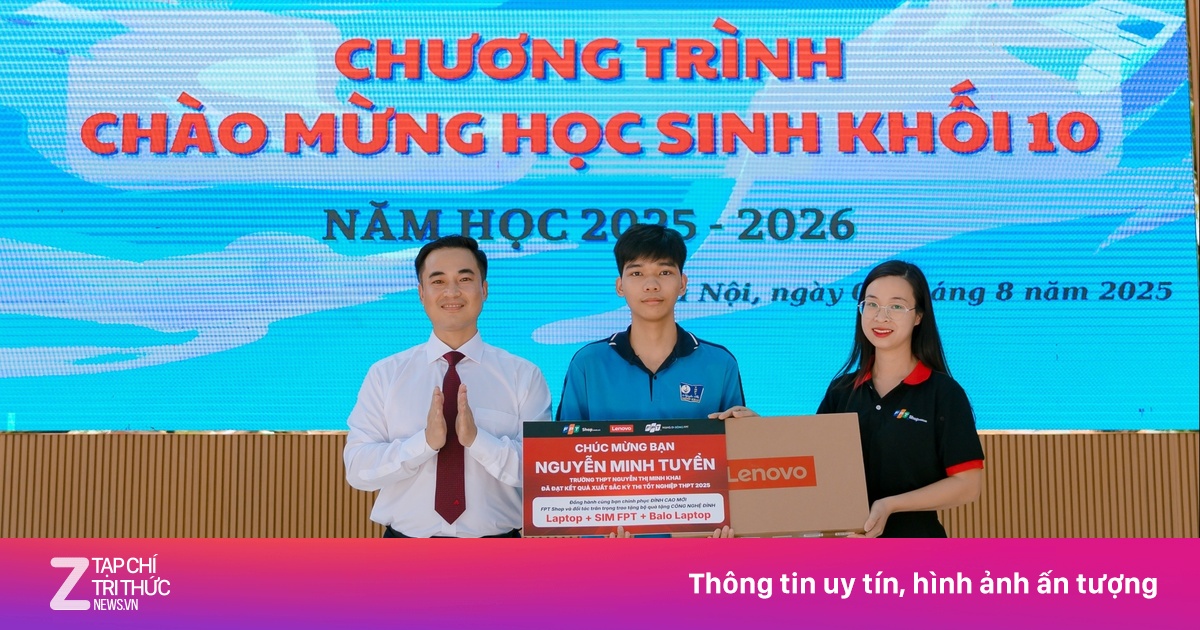

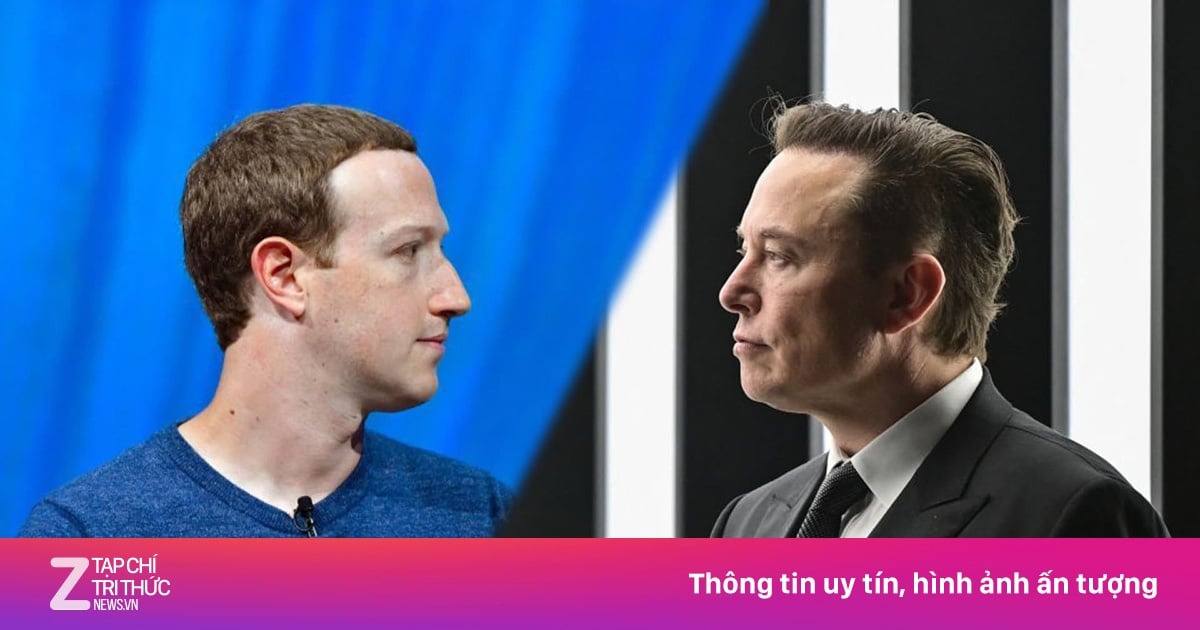
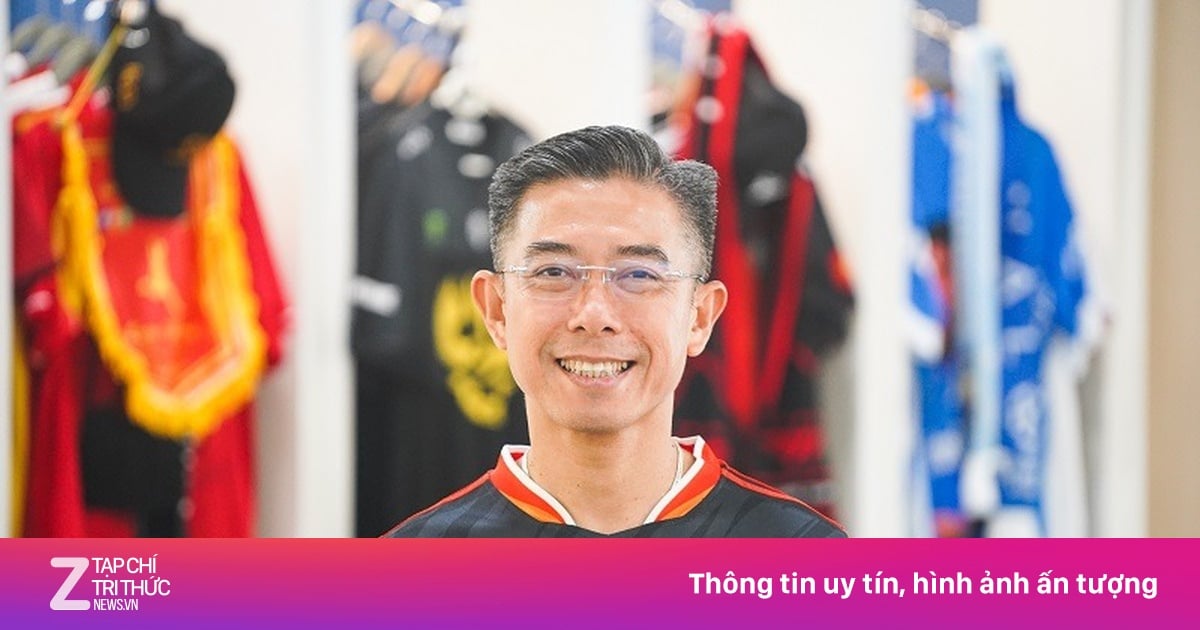







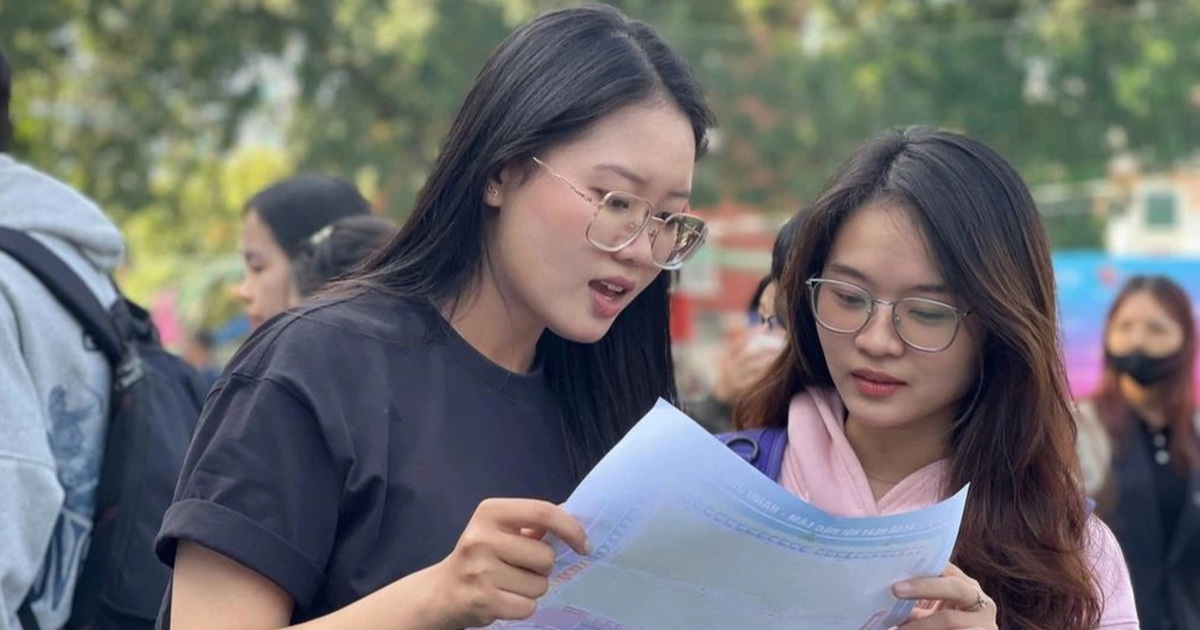
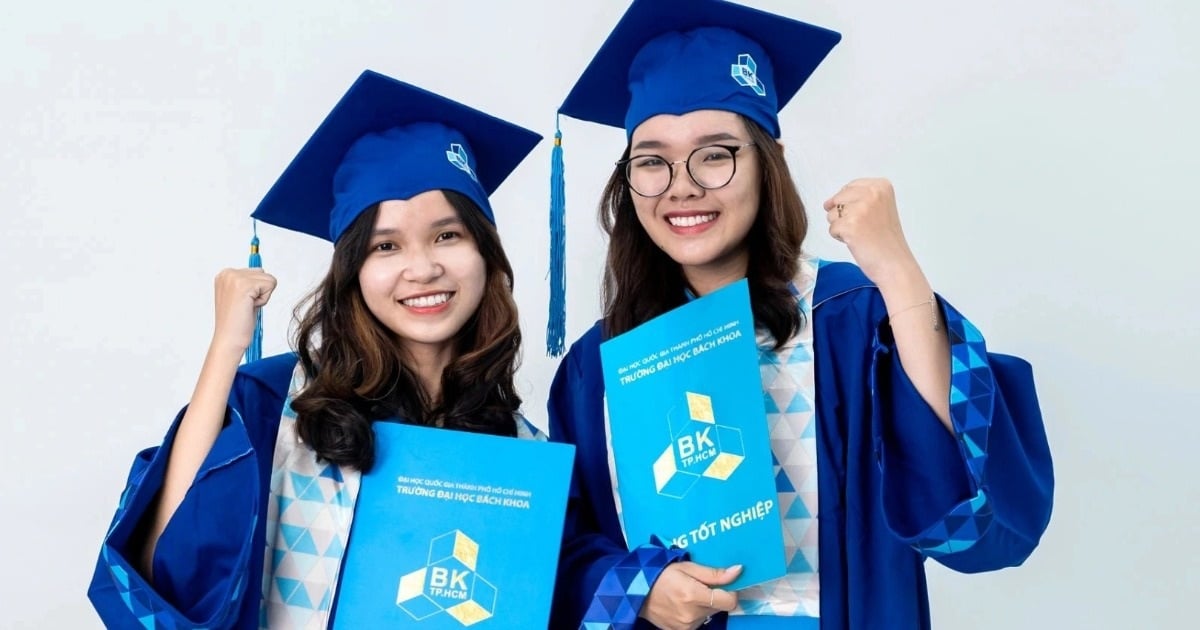



































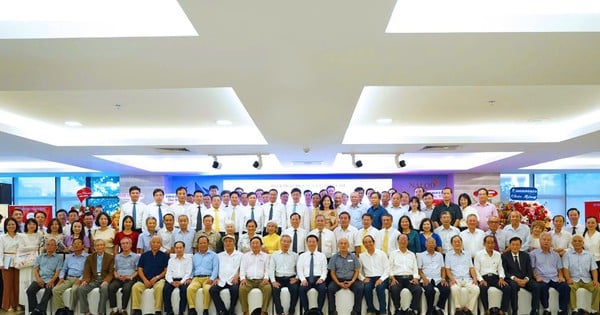

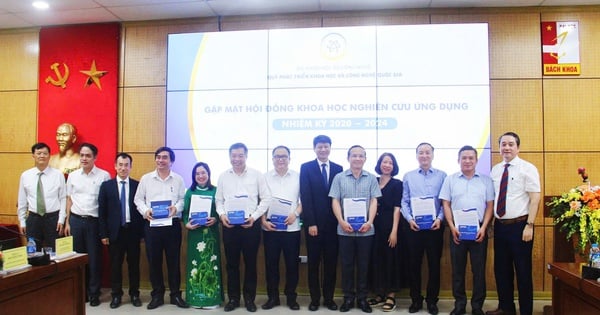







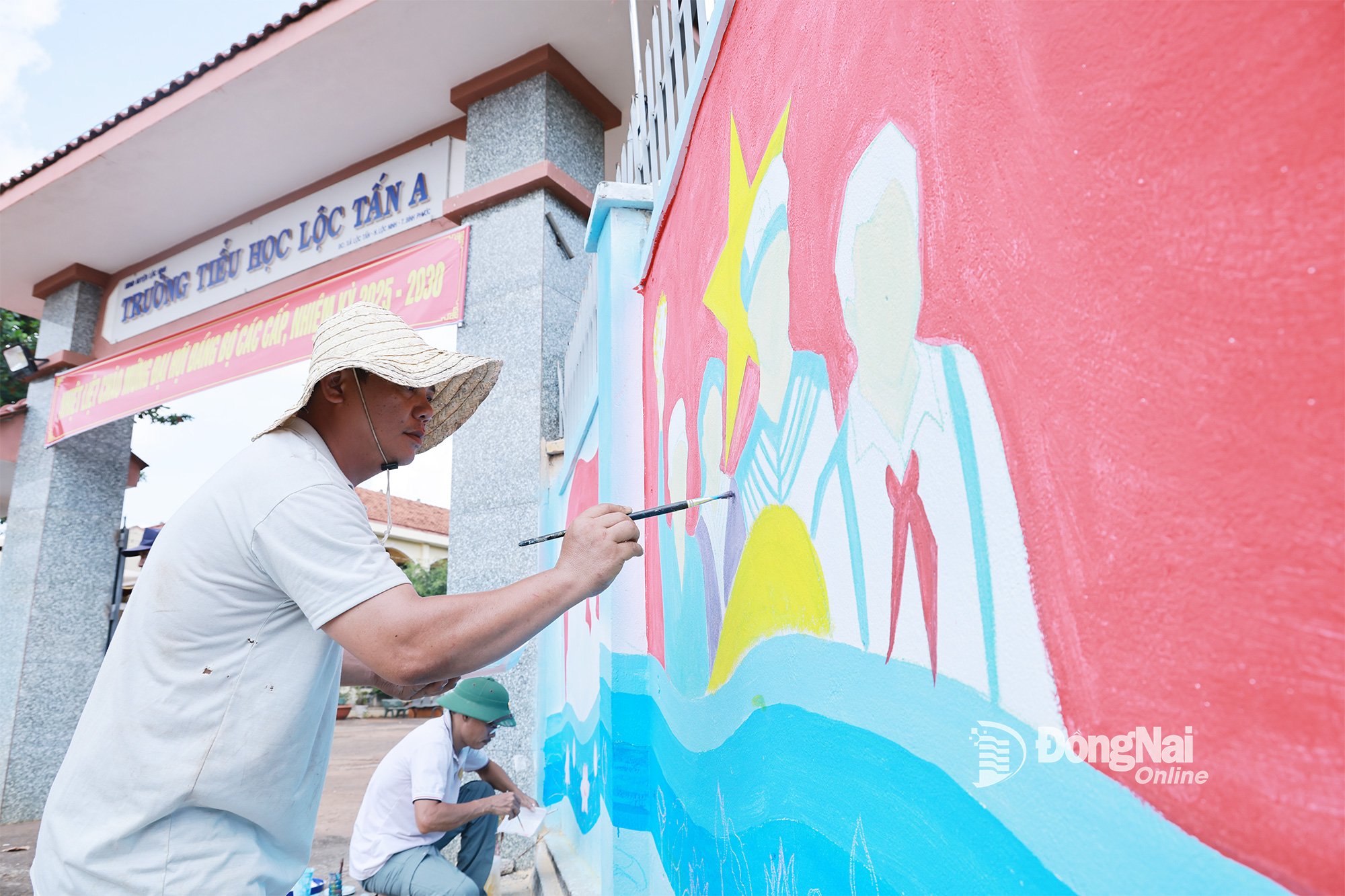
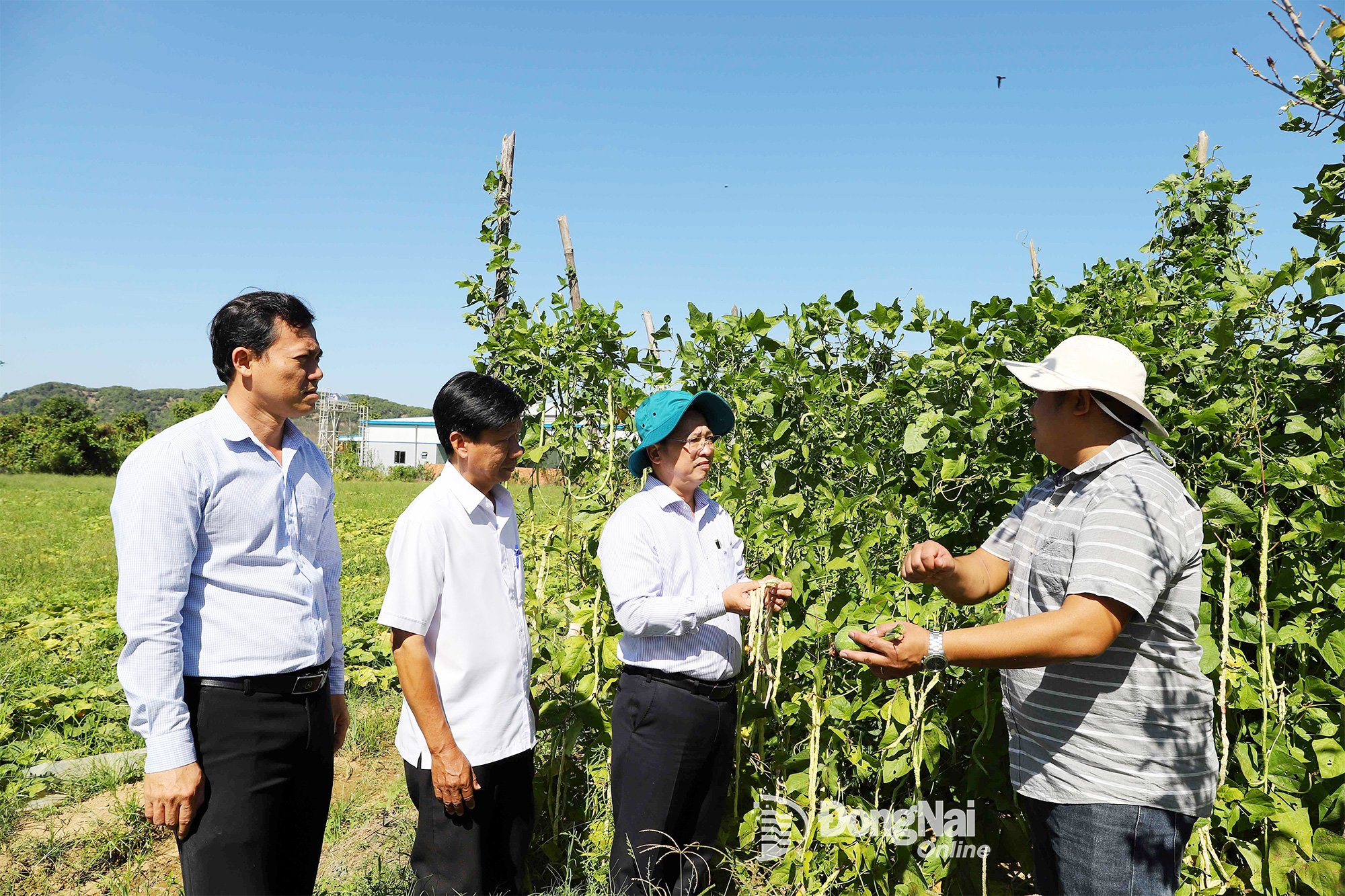
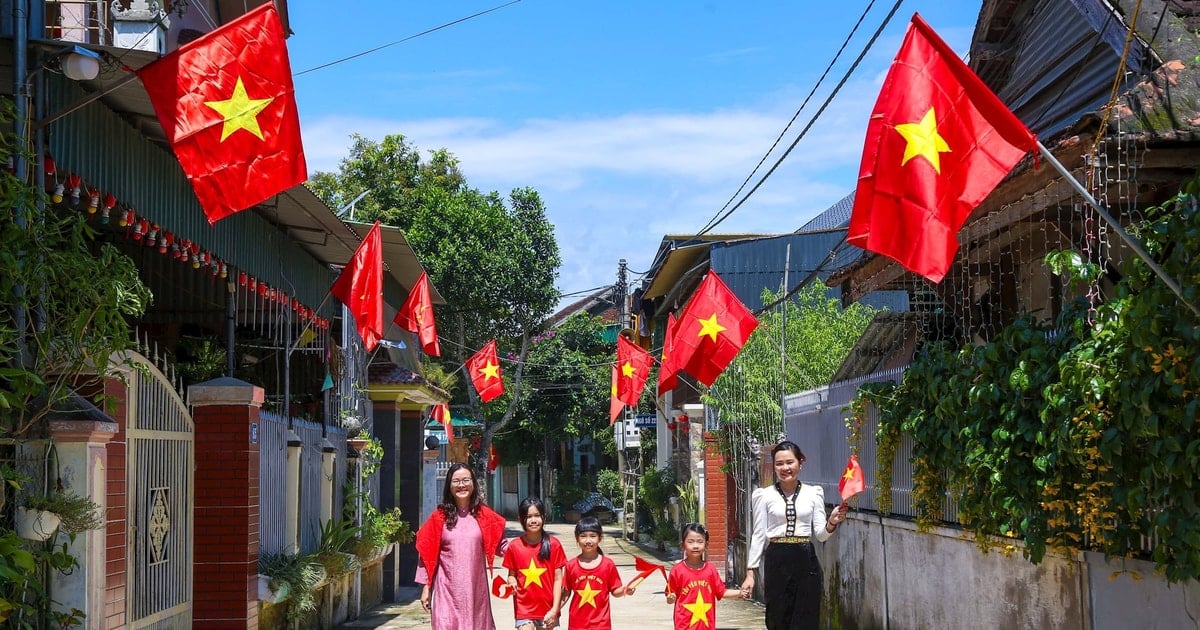

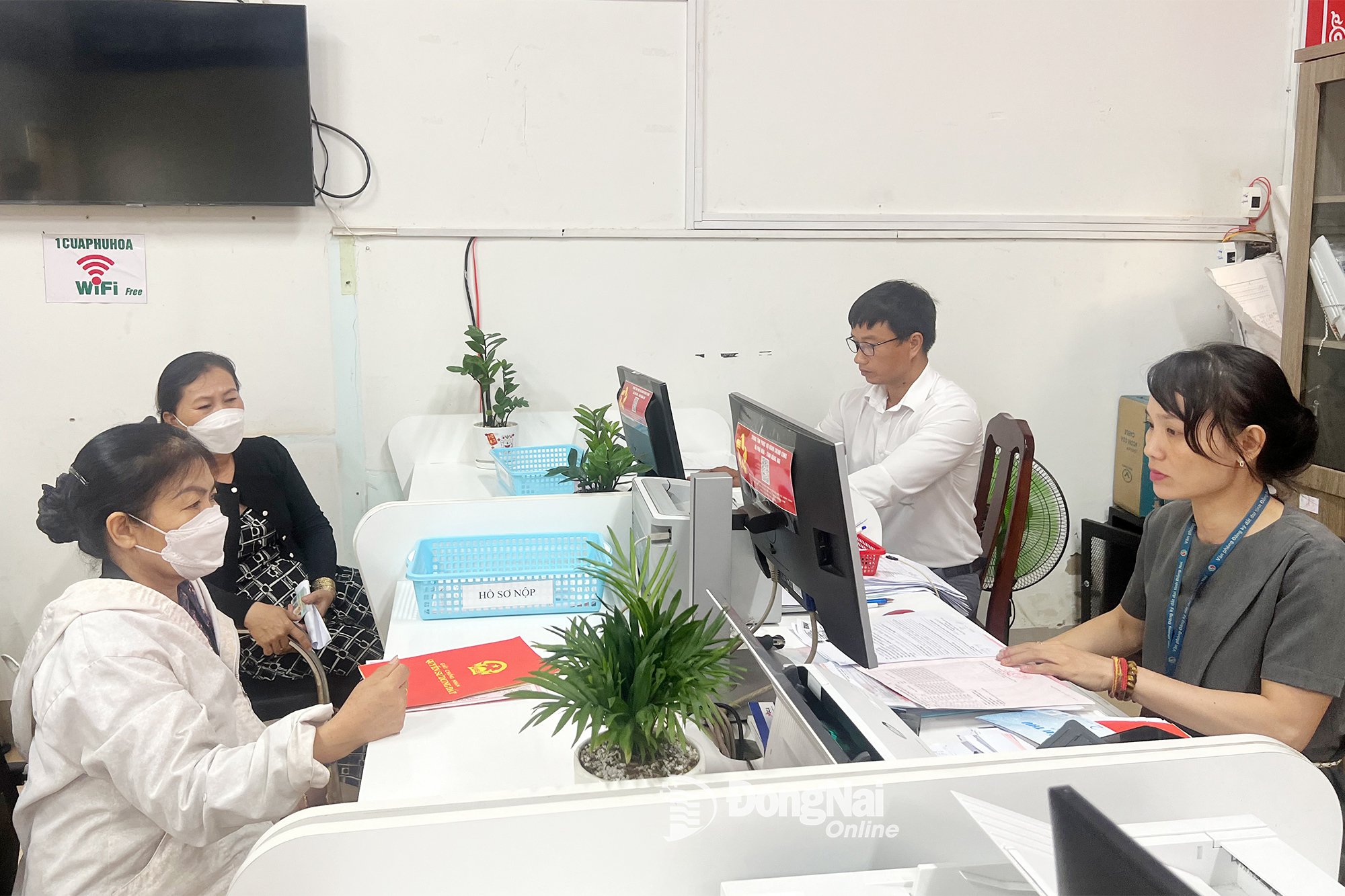
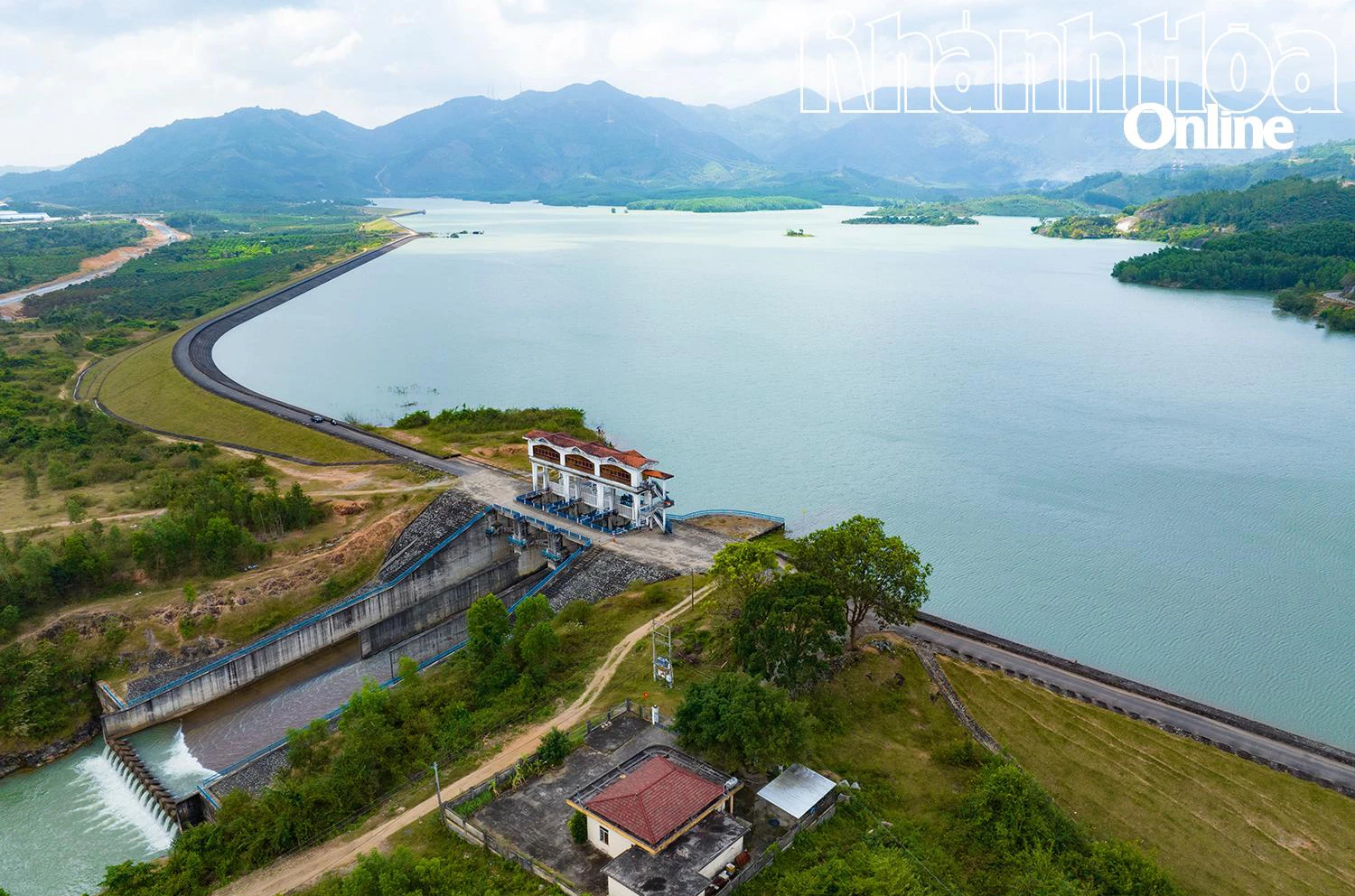















Comment (0)